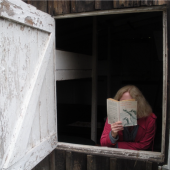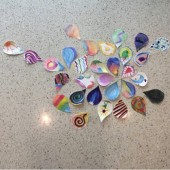
Abstract: Aldo Leopold’s classic essay, “Thinking Like a Mountain,” has been a touchstone of environmental ethics and sustainability education for over seventy years and continues to challenge and inspire wildlife ecology undergraduate students, and many more. But has it lost some power in the face of mounting evidence of accelerating damage and growing threats to the natural world, threatening biodiversity and human society on a global scale? Students and others now need another Leopold story, one that encapsulates an environmental ethic with a call for urgent action, a metaphor that urges not just change, but rapid transformation.
Continue Reading
Abstract: For five years we taught a field philosophy course in Isle Royale National Park to study if and how wilderness experience, coupled with a care-based and community-focused curriculum in place-based ecology and environmental ethics, could help students develop empathy for nonhuman nature. Empathy for the natural world can positively impact environmental attitudes and behaviors; empathy also plays an important role in citizenship skills and actions. Using a constructivist grounded theory qualitative analysis of student pre-, on-, and post-course writing, we found that students consistently demonstrated shifts in empathetic awareness and individual agency all years but one, when the course size was larger. Several factors impacted the development of an empowered sense of self and moral agency, including: the use of narrative and storytelling in the curriculum, the inclusion of student-driven choice-based assignments, and group size. Experiential environmental learning focused on the development of empathy can provide a meaningful path for students to bridge moral agency, environmental attitudes and knowledge, and citizenship skills and behavior so they can connect their values with action These results have consequential impacts for sustainability learning and action.
Continue Reading
Abstract: Integrating contemplative methods into discussions of sustainability can create a sense of hope and agency in our students. In this case study, I present four tools that I use in my upper-level undergraduate/graduate seminar to engage students more deeply in reflection on topics in environmental ethics.
Continue Reading